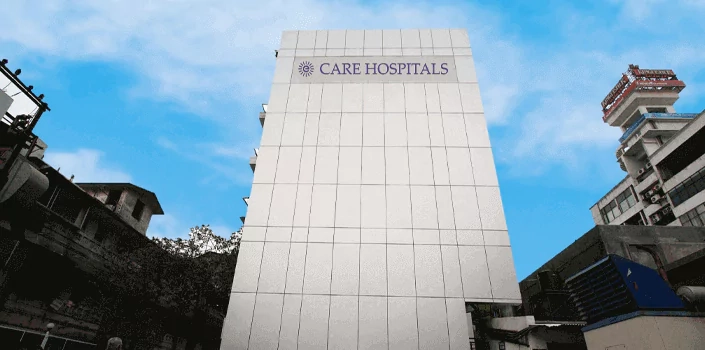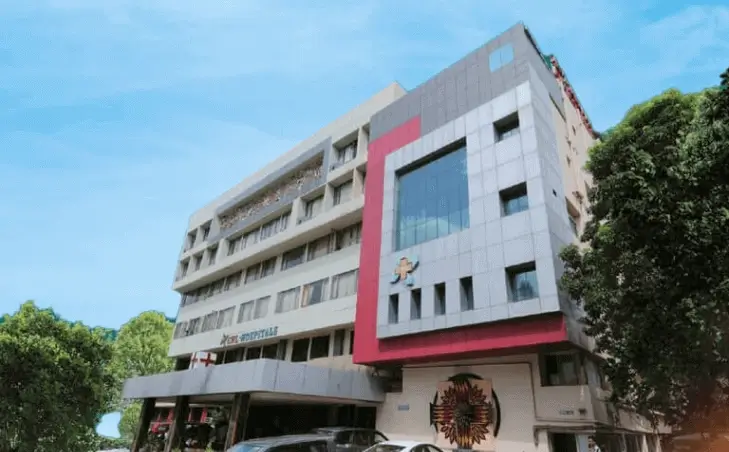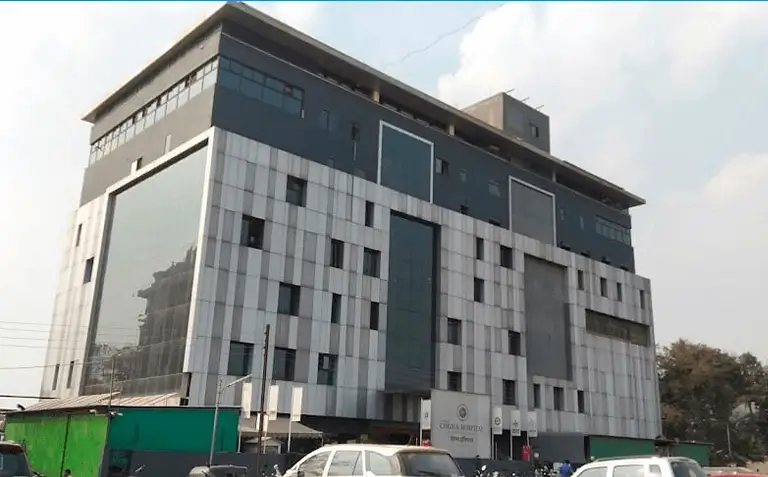-
Doctors
-
Specialities & Treatments
Centre of Excellence
Specialties
Treatments and Procedures
Hospitals & Directions HyderabadCARE Hospitals, Banjara Hills CARE Outpatient Centre, Banjara Hills CARE Hospitals, HITEC City CARE Hospitals, Nampally Gurunanak CARE Hospitals, Musheerabad CARE Hospitals Outpatient Centre, HITEC City CARE Hospitals, Malakpet
HyderabadCARE Hospitals, Banjara Hills CARE Outpatient Centre, Banjara Hills CARE Hospitals, HITEC City CARE Hospitals, Nampally Gurunanak CARE Hospitals, Musheerabad CARE Hospitals Outpatient Centre, HITEC City CARE Hospitals, Malakpet Raipur
Raipur
 Bhubaneswar
Bhubaneswar Visakhapatnam
Visakhapatnam
 Nagpur
Nagpur
 Indore
Indore
 Chh. Sambhajinagar
Chh. SambhajinagarClinics & Medical Centers
Book an AppointmentContact Us
Online Lab Reports
Book an Appointment
Consult Super-Specialist Doctors at CARE Hospitals

Best Hospital for Mastoidectomy Surgery in Hyderabad
- Advanced Technology
- Shorter Hospital Stay
- Pre & Post-Operative Care
- All Insurance Accepted

Chat With Our Experts
Get second opinion on Whatsapp
25 lakhs+
Happy Patients
Experienced and
skilled surgeons
17
Health Care Facilities
Top most Referral Centre
for Complex Surgeries
Advanced Mastoidectomy Surgery
Mastoidectomy surgery removes thin bone partitions to access air-filled cells behind the ear. The unique temporal bone pneumatisation patterns make each operation special from patient to patient. A honeycomb-like structure filled with air cells, the mastoid bone sits just behind the ear.
Your surgeon will recommend this procedure when they find that your middle ear infections get spread to the mastoid bone or you have developed a condition called cholesteatoma. Without treatment, these conditions may cause complications like meningitis and brain abscesses. You may take 6 to 12 weeks for complete recovery after surgery. Let's discuss mastoidectomy in detail so you can feel at ease before choosing this surgery.

Why CARE Group Hospitals is Your Top Choice for Mastoidectomy Surgery in Hyderabad
CARE Group Hospitals has become the go-to place for mastoidectomy surgery in Hyderabad. Patients who are looking for expert ear care trust the hospital's steadfast dedication to quality and a patient-first approach
Best Mastoidectomy Surgery Doctors in India


Cutting-edge Surgical Innovations at CARE Hospital
CARE Hospitals brings together skilled medical and surgical specialists. They provide correct diagnoses and suitable treatment options. The hospital uses advanced machines with innovative technology to achieve precise surgical outcomes. The focus on minimally invasive procedures can let patients recover faster with fewer complications.
The surgical team makes patient comfort their top priority. They blend technical expertise with caring support to make surgery less stressful for patients with ear conditions.
Conditions for Mastoidectomy Surgery
CARE Hospitals performs mastoidectomy surgery to treat several medical conditions that affect the mastoid bone and ear structures:
- Chronic Ear Infections: The surgery treats stubborn infections that don't respond to other treatments by removing infected tissue from the mastoid air cells.
- Cholesteatoma: This non-cancerous skin growth in the middle ear can damage ear structures and cause hearing loss if not treated.
- Complications of Ear Infections: These include mastoiditis (inflammation of the mastoid bone) that needs surgery.
- Middle Ear Abnormalities: Surgery can fix certain congenital conditions affecting ear structures.
- Placement of Cochlear Implants: Recommended for patients who have impaired hearing.
Types of Mastoidectomy Procedures
CARE Hospitals provides different mastoidectomy procedures. The doctor chooses the best type based on disease extent and each patient's condition:
- Simple Mastoidectomy: The surgeon opens the mastoid bone and removes infected air cells to drain the middle ear. They take utmost precautions so that the ear structures remain intact.
- Radical Mastoidectomy: This major procedure removes the mastoid cells, eardrum, most ear structures, and the ear canal. Doctors usually recommend this for complicated mastoid disease.
- Modified Radical Mastoidectomy: This balanced approach removes the mastoid air cells and some middle ear structures. It aims to eliminate the disease while preserving hearing.
Know the Procedure
Here's what you should know about this ear procedure:
Pre-surgery Preparation
- Your doctor will get a full picture of your medical history and review your medications.
- You might need to stop taking certain medications temporarily.
- You will have to fast for a specific time, usually starting the night before your surgery.
Following these instructions will give a safer surgical experience.
Mastoidectomy Surgical Procedure
You will receive general anaesthesia to stay comfortable during the operation. Your surgeon will:
- Make an incision behind your ear to reach the mastoid bone
- Work with special instruments and a microscope to open the bone
- Remove infected air cells from the mastoid
- Finally, an inspection of the surgical area and closing of the surgical site with stitches
- Cover the wound with gauze
The procedure usually takes two to three hours.
Post-surgery Recovery
You might have some discomfort and swelling at first. Your ear might feel full, too. Most patients bounce back within 3-7 days, although full healing takes 6-12 weeks. Your doctor will tell you how to keep your ear dry, avoid swimming, and not blow your nose for at least three weeks. Activity limits usually last 3-4 weeks.
Risks and Complications
The surgery carries some risks, like:
- Bleeding
- Dizziness
- Numbness around the ear
- Temporary changes in how food tastes - often metallic or sour (this usually gets better within months).
- Tinnitus (ringing, hissing, or buzzing sounds)
- Recurring infections in the surgical area
- Serious but rare complications: Facial nerve weakness or paralysis, sensorineural hearing loss (inner ear), and cerebrospinal fluid leakage
Serious complications rarely happen, especially with experienced surgeons.
Benefits of Mastoidectomy Surgery
This surgery treats chronic ear infections effectively and stops serious complications from developing. It relieves symptoms such as pain and discharge. When combined with other procedures, it can help restore hearing damaged by chronic infections.
Insurance Assistance for Mastoidectomy Surgery
Most health insurance plans cover mastoidectomy because it's medically necessary. The coverage usually includes your hospital stay costs, surgeon's fees, and medication costs.
Second Opinion for Mastoidectomy Surgery
The viewpoint of other experts helps validate your diagnosis. They give information on all available treatment options. Take your medical records, imaging results, and previous doctor's notes when you see another specialist.
Mastoidectomy Surgery Hospitals in India
-
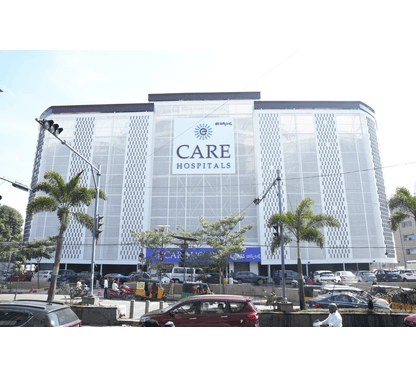
CARE Hospitals, Banjara Hills, Hyderabad
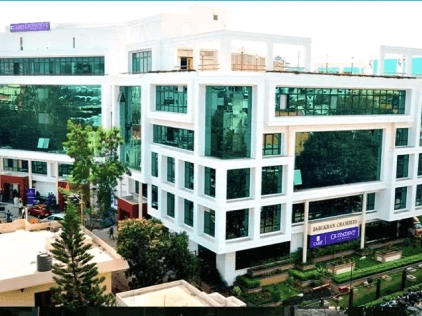
CARE Hospitals Outpatient Centre, Banjara Hills, Hyderabad
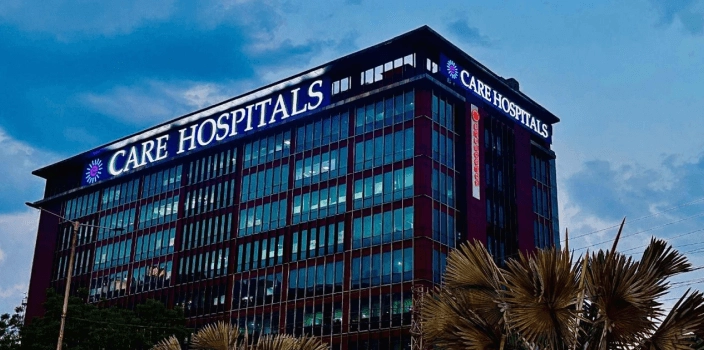
CARE Hospitals, HITEC City, Hyderabad
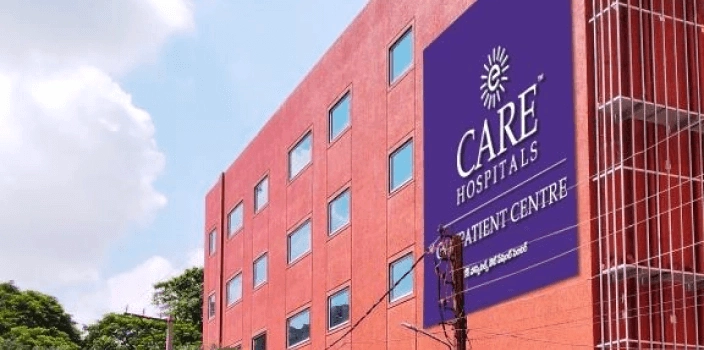
CARE Hospitals Outpatient Centre, HITEC City, Hyderabad
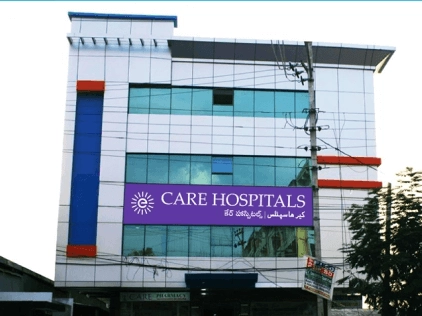
Gurunanak CARE Hospitals, Musheerabad, Hyderabad
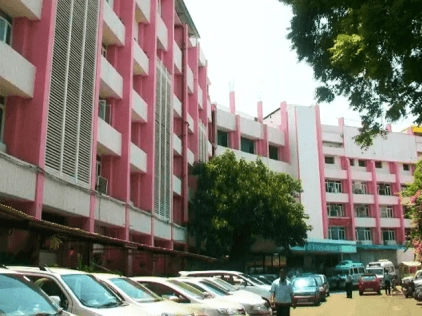
CARE Hospitals, Nampally, Hyderabad
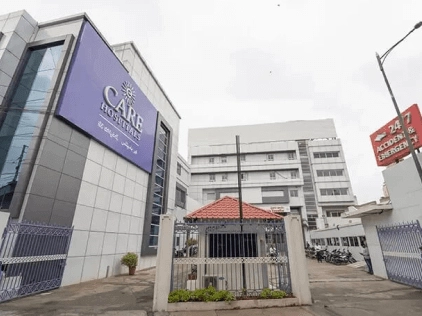
CARE Hospitals, Malakpet, Hyderabad
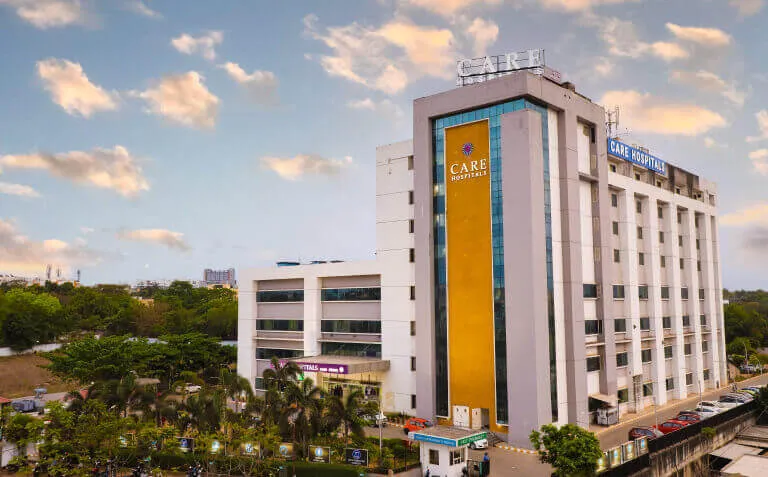
CARE Hospitals, Bhubaneswar
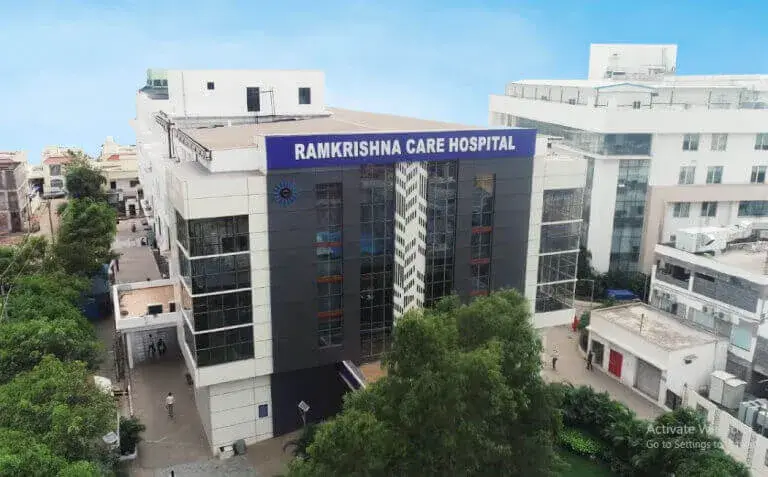
Ramkrishna CARE Hospitals, Raipur
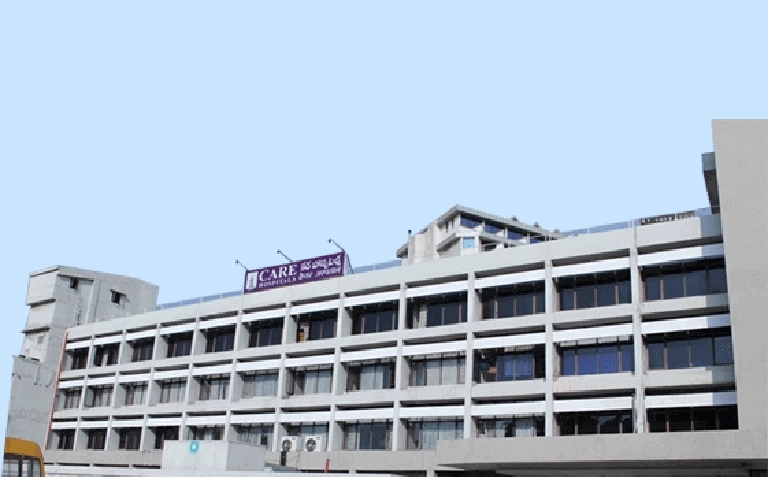
CARE Hospitals, Ramnagar, Visakhapatnam
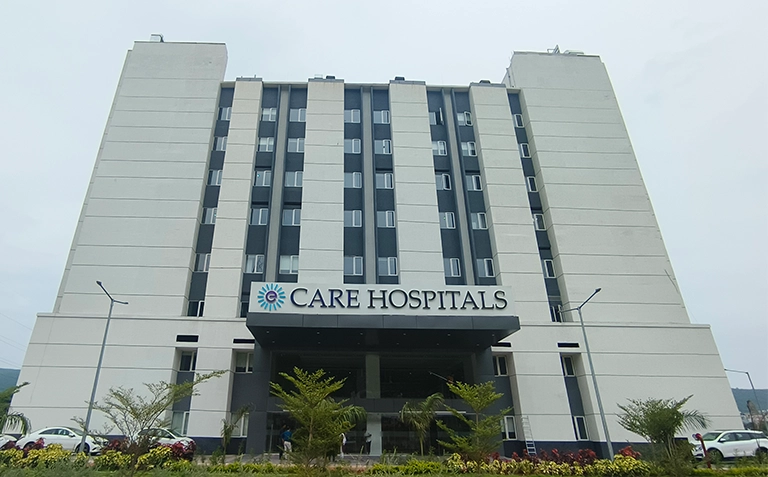
CARE Hospitals, Health City, Arilova
Related Surgeries
- Best Hospital for Thyroplasty Surgery in Hyderabad
- Best Hospital for Mastoidectomy Surgery in Hyderabad
- Best Hospital for Palatoplasty Surgery in Hyderabad
- Best Hospital for Turbinoplasty Surgery in Hyderabad
- Best Hospitals for Maxillectomy Surgery in Hyderabad
- Best Hospital for Septoplasty Surgery in Hyderabad
- Best Hospital for Hemithyroidectomy Surgery in Hyderabad
- Best Hospital for Tracheostomy Surgery in Hyderabad
- Best Hospital for Myringotomy in Hyderabad
- Best Hospital for Adenoidectomy Surgery in Hyderabad
Frequently Asked Questions
Your surgeon performs mastoidectomy surgery to remove infected or diseased cells from the mastoid bone. The mastoid is a honeycomb-shaped bone which forms your skull along with other bones and is located behind your ear.
During this surgery, surgeons make an incision behind the ear to get access to the mastoid. They use specialised instruments and a microscope to remove affected cells while protecting surrounding structures.
Most mastoidectomy operations last 2 to 3 hours. The surgery's length depends on:
- Your infection or disease extent
- The mastoidectomy type (simple, canal-wall-up, or canal-wall-down)
- Additional ear structure repairs, if needed
Mastoidectomy qualifies as a major surgery. This classification comes from:
- The need for general anaesthesia
- Close proximity to critical structures (facial nerve, brain)
- Specialised surgical techniques required
- Recovery time needed
The procedure remains safe, and most patients experience only minor complications when skilled surgeons perform the operation.
Sometimes, the improvement is visible within days. On the other hand, some people may take up to 14 days for initial healing. You can resume light activities shortly after surgery.
Recovery progresses in stages:
- The first 3-7 days are the stage of basic healing
- The next 2 to 3 weeks is the time when most patients return to work
- Complete recovery takes 6-12 weeks
Doctors use general anaesthesia for mastoidectomy surgery. This approach:
- Keeps you completely unconscious during the operation
- Prevents pain throughout surgery
- Stops sudden movements that might affect surgical precision
- Makes the delicate procedure comfortable for you and your surgeon
The surgery itself doesn't cause pain since you will be under general anaesthesia. Most patients feel mild discomfort rather than severe pain afterwards. You will likely feel soreness around the incision behind your ear, and your ear might feel stuffy or full.
Like any surgery, mastoidectomy has certain risks:
- Bleeding
- Dizziness
- Numbness around the ear
- Temporary taste changes
- Tinnitus
- Recurring infections in the surgical area
- Serious complications happen rarely but could include facial nerve injury, hearing loss, or cerebrospinal fluid leakage.
Your hearing results depend on your specific condition and the type of mastoidectomy. Removing chronic ear infections can actually make your hearing better in some cases. Some hearing loss often happens with modified radical and radical mastoidectomy procedures. Your surgeon will test your hearing 8 to 12 weeks after surgery.
Your need for additional surgery depends on your specific condition. Regular checkups help monitor your healing and catch any issues early. You might need more procedures if you develop retraction in your ear's posterior superior quadrant. Your ENT specialist will schedule follow-up visits to check your healing and address any concerns quickly.
Still Have a Question?


















